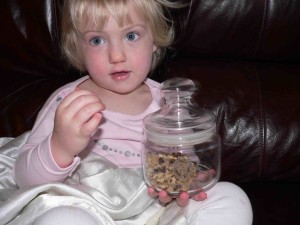If it wasn’t for my friend and journalist, Jim Romahn (right, exactly as shown), I probably would have stopped the food safety gig 10 years ago and went off to play bad banjo in a bluegrass band, or bad goalie in a 15th tier semi-pro hockey league, or become a greeter at Wal-Mart.
.jpg) By about 1999, I’d gotten bored of hearing myself talk. There’s lots of prof types who make careers out of recycling, but after publishing a book, Mad Cows and Mother’s Milk, and going on the academic circuit, I was really bored with myself.
By about 1999, I’d gotten bored of hearing myself talk. There’s lots of prof types who make careers out of recycling, but after publishing a book, Mad Cows and Mother’s Milk, and going on the academic circuit, I was really bored with myself.
Jim, who’s been the premier agriculture and food reporter in Canada for about as long as I’ve been alive and used to write speeches for Canadian Minister of Agriculture, Eugene Whelan (the dude in the green Stetson), gave me some advice:
“’Gene used to tell me, when you’ve been on every radio station, when you’ve talked to every local ag meeting, when you can’t stand to hear yourself say the same thing again, that’s when people are just starting to listen. So get over yourself.”
Or that’s about as close as I remember the tale. And it’s one reason why I still do food safety stuff.
Jim sent me a story that ran yesterday, that beautifully demonstrates why the Internet still needs real investigative journalists to provide analysis, rather than just stick their names on press releases: the later is not journalism, it’s promotion and redistribution using electronic toys.
Jim reported that,
“Canada’s reputation for dairy genetics has taken a huge hit because of the massive fraud perpetrated by trusted veterinarian Dr. Brian Hill and his Maple Hill Embryos Inc. of Woodstock, Ont.
He shipped more than six thousand embryos each to China and Russia under false documentation, and more thousands to the Ukraine and Cyprus.
He took embryos from scores of Ontario’s leading Holstein and Jersey breeders, but the lawyers involved in the case decided they couldn’t easily prove theft.
They could prove massive fraud. In some cases, Hill falsified the breeding slips for artificial insemination, the identity of the dam, the breeding date and the embryo recovery date and health certificates.
Some of these frauds were so blatant that a novice ought to have noticed, such as embryo recoveries from one donor cow two weeks apart and recoveries of 18 embryos per collection when the average is seven.
The Chinese set high standards for what they wanted to buy from Hill. In fact, he identified only six cows that qualified, yet shipped them more than 6,000 embryos all collected within a year.
It’s one thing for Hill to cheat this way.
It’s another for the Canadian Food Inspection Agency to be so asleep at the switch that it never noticed.
 Its veterinarians signed the paperwork clearing the embryo exports. Its veterinarians failed to notice collection dates two weeks apart for the same donor cow. Its veterinarians failed to notice Hill apparently collected more than 6,000 embryos from six cows within less than a year.
Its veterinarians signed the paperwork clearing the embryo exports. Its veterinarians failed to notice collection dates two weeks apart for the same donor cow. Its veterinarians failed to notice Hill apparently collected more than 6,000 embryos from six cows within less than a year.
The Canadian Food Inspection Agency is supposed to audit registered embryo collection centres. Hill had one of those, yet the property owner said he never saw Hill, let alone government inspectors, at the place."
Audits really don’t mean much, for food safety, or cattle sperm. Thanks, Jim, for helping me get over myself, and moving on.



 Tiger Woods’s handling of the scandal is a textbook case in poor crisis management, say crisis managers.
Tiger Woods’s handling of the scandal is a textbook case in poor crisis management, say crisis managers..jpg) But good communications is never enough. With any risk, or crisis, or problem, what is required is solid assessment, management and communication. Screw up any one, and the brand or person will suffer.
But good communications is never enough. With any risk, or crisis, or problem, what is required is solid assessment, management and communication. Screw up any one, and the brand or person will suffer..jpg) By about 1999, I’d gotten bored of hearing myself talk. There’s lots of prof types who make careers out of recycling, but after publishing a book, Mad Cows and Mother’s Milk, and going on the academic circuit, I was really bored with myself.
By about 1999, I’d gotten bored of hearing myself talk. There’s lots of prof types who make careers out of recycling, but after publishing a book, Mad Cows and Mother’s Milk, and going on the academic circuit, I was really bored with myself. Its veterinarians signed the paperwork clearing the embryo exports. Its veterinarians failed to notice collection dates two weeks apart for the same donor cow. Its veterinarians failed to notice Hill apparently collected more than 6,000 embryos from six cows within less than a year.
Its veterinarians signed the paperwork clearing the embryo exports. Its veterinarians failed to notice collection dates two weeks apart for the same donor cow. Its veterinarians failed to notice Hill apparently collected more than 6,000 embryos from six cows within less than a year.